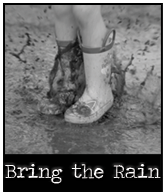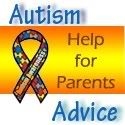

-------------"There are two lasting bequests we can give our children. One is roots. The other is wings." ~Hodding Carter, Jr.
It is perfectly normal for a toddler to have fears. Abnormal fears are ones in which you cannot get your toddler to focus on anything else because he is consumed with his fear. Obviously a fear such as this needs to be addressed differently. But today we are addressing fears that are normal for toddlers and how to help ease a toddlers anxiety and help him face and overcome his fears, through gentle, loving, heroic parenting.
The most common of toddler fears is strangers, someone coming to close, darkness, loud noises and crowded places. Sitting on the potty is also a common toddler fear, as well as going to the doctor or the doctor himself, nurses and the first day of school. These are the most common but are not by any means the only ones.
Their Fears are Fears Nonetheless
What may seem silly to an adult is not silly to your toddler. They are afraid of the dark because they cannot comprehend that light will chase it away. They may be afraid of strangers because there is no familiarity to them at all. They can be afraid of places because they cannot understand variety and differences in sounds, structures, etc and cannot understand how things are made and constructed. They feel overwhelmed and insecure, which then sets of their fear.
Parents are aware of the importance a child's imagination plays in their growth and childhood. Fueling their imagination by encourage pretend play is on the list of priorities. However, with a growing imagination can come new fears, insecurities, and worries for a toddler.
Often times a child will display his fears through his toys during pretend play. Parents can observe their child when playing - don't disturb them in their imaginative world but watch and listen from a distance. If you see your child playing out his fears, watch him play it out and try and gain a sense of where the fear might be coming from. Talk to your child about it and offer a loving helping hand through understanding and advice. Another suggestion is to play along with your child, in pretend play, and destroy his fear. This is where mom and dad get to use their imagination to find a way for his toys to destroy his fear into thin air.
It is your duty as a loving parent to help your toddler face his fears and get back on the pony. This is something adults have to do many many times in their life, and learning from a young age, with support and understanding will foster a more resilient child in adulthood.
- Help your child feel more confident in new situations.
- Take his fears seriously, offer support and reassurance for each episode of fear.
- Always be upbeat and positive when you deal with your toddler fears. You have to be solid, strong and secure, yet show that you are taking their fear seriously.
- Take the bad memories and turn them into good ones. Remind your child of the fun he had when he was riding his bike and how great the pictures are of his first bike ride. Don't pressure him, just remind him of the fun stuff.
- Be honest. If something is going to hurt don't say it won't . Reassure your child it will only last a second and give him something to look forward to after his ordeal.
- Avoid being overprotective.
- Don't over react. Avoid over reacting to small childhood falls, spills, trips and mess ups. Over reacting will cause an even more vivid memory for your toddler and also scare them, which only adds to trauma. If he sees you cool it helps him to realize it isn't such a big deal.
- Be aware of your child's temperament in order to gage his fears, and how best to help him.
- Be Patient. In time child will move forward and will find strength from you if you have been supportive, and will to take bolder steps.
- When discussing your child's fears with another person, make sure your child cannot hear your discussion.
- Choose a soothing bedtime routine to perform on a nightly basis. Doing this will also help your child learn to sleep independently, lessening bedtime tantrums and waking up mom and dad in the middle of the night to help get him back to sleep. Baby Sleep Help - Early Prep for Toddlerhood
- For a 1 year old who wakes in the middle of night looking for reassurance, it is good to go your child's bedside and soothe him if necessary. Try not to take your child out of bed and refrain from taking him to your bed, so as not to start bad habits toward bedtime problems in the near future.
- Helping your child to stay in bed at night will help him face his fears of the dark and develop confidence when he realizes there is nothing to be afraid of, and night will soon turn to day. Help Baby Sleep through the Night - 4 Little Secrets
- Resist disturbing your child if you hear him playing in bed or talking to himself or his toys (venturing into pretend play). This is his way of dealing with his fears and helping to put himself back to sleep.
- Using pretend play and role playing can help with bedtime fears and fears of the dark as well, and are highly effective in soothing your child when mom or dad are involved.
- Keep an eye out for fears that could be phobias and will require professional attention. Phobias will disrupt your child's development and regular activities, and won't respond to repeated attempts of reassurance. The sooner you diagnose a phobia the sooner the treatment can take affect and help your child.
Learn the top 7 toddlerhood early starters
gq4j6eryha


































































0 comments:
Post a Comment